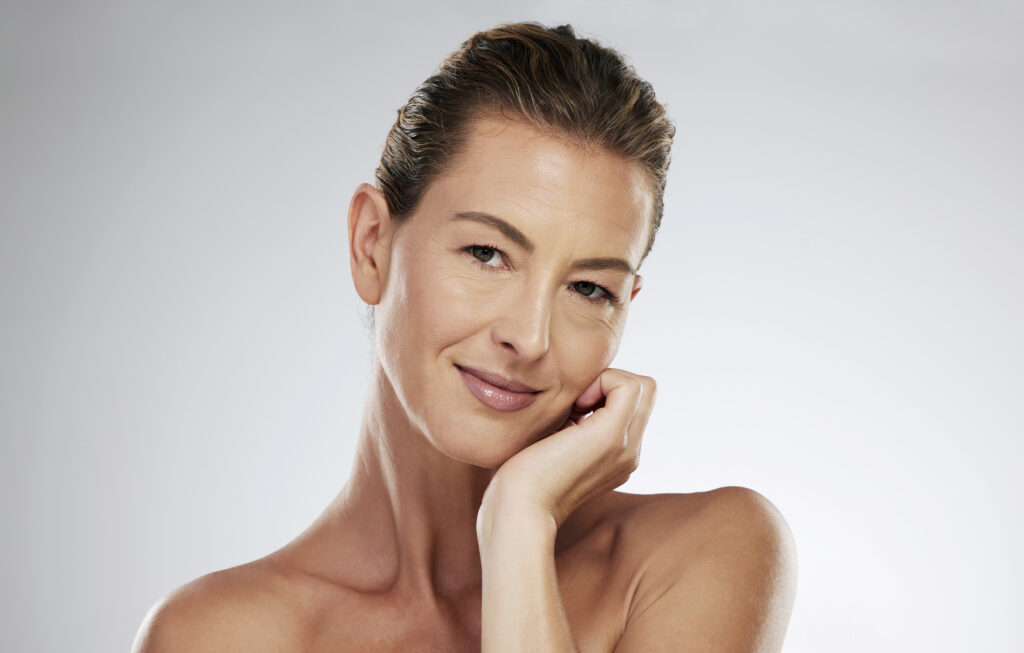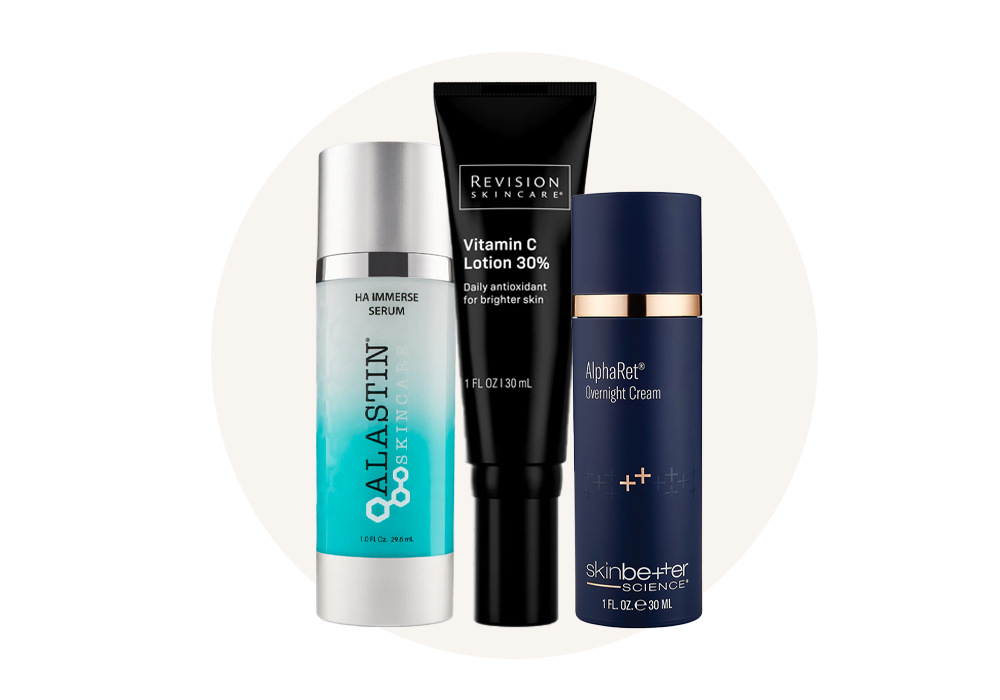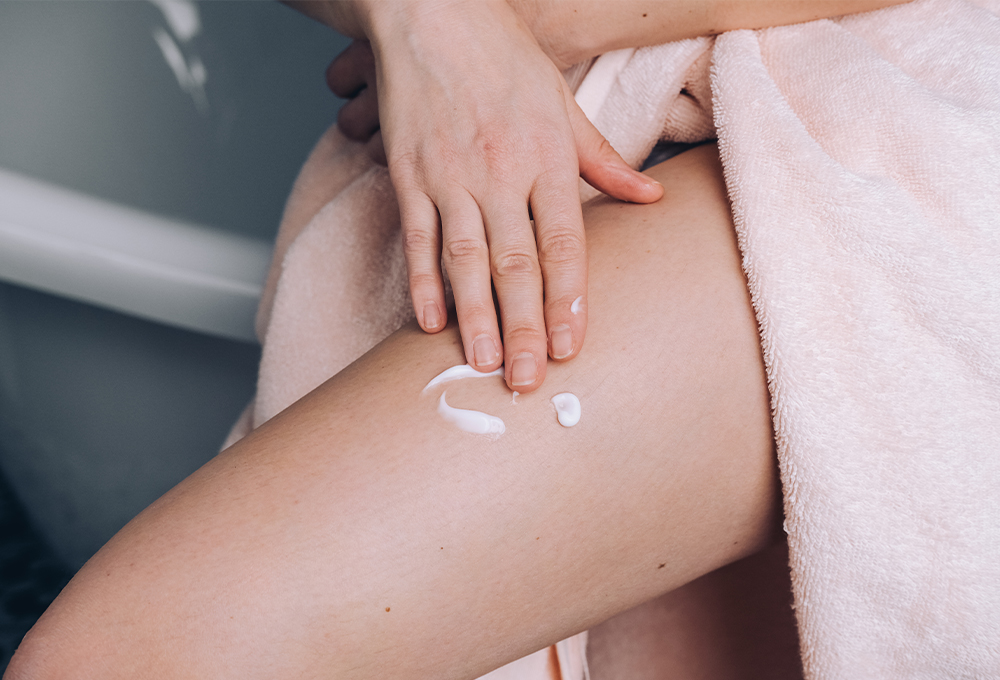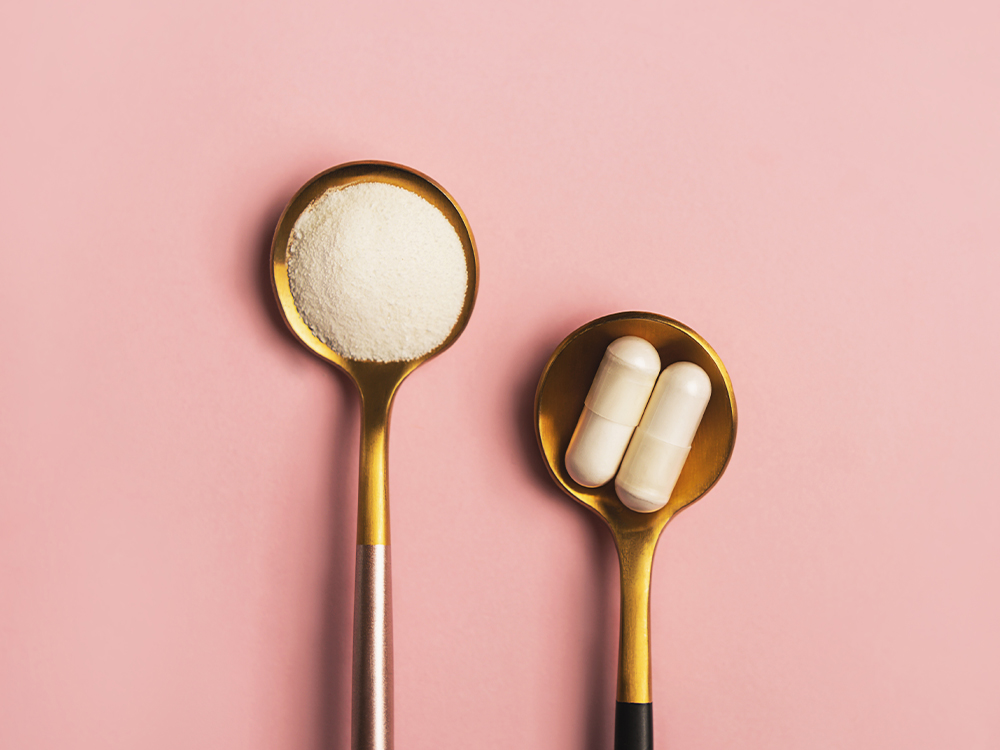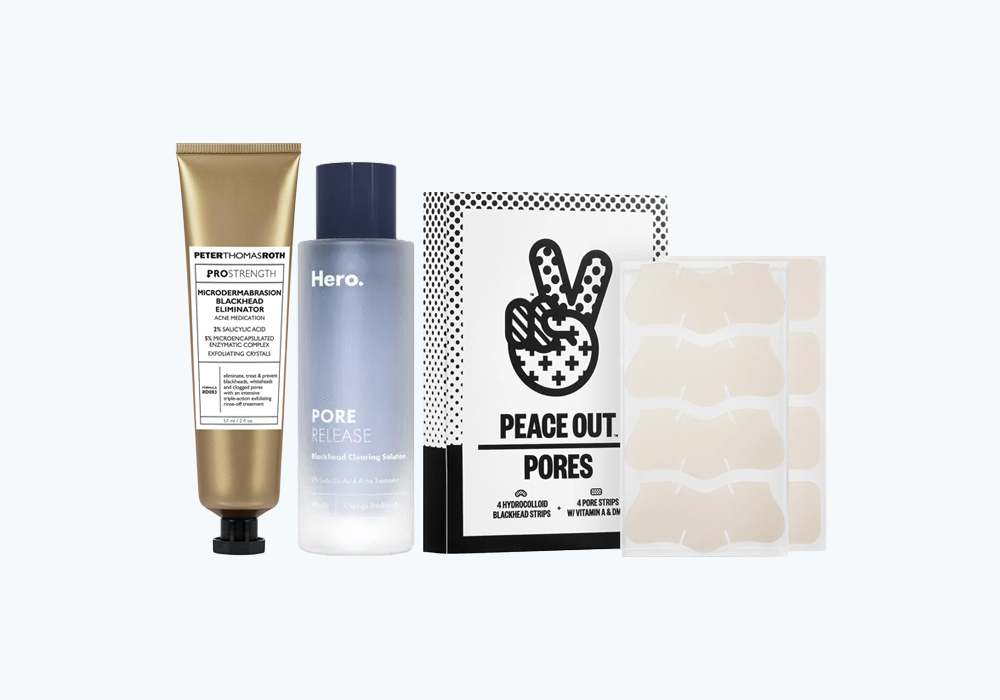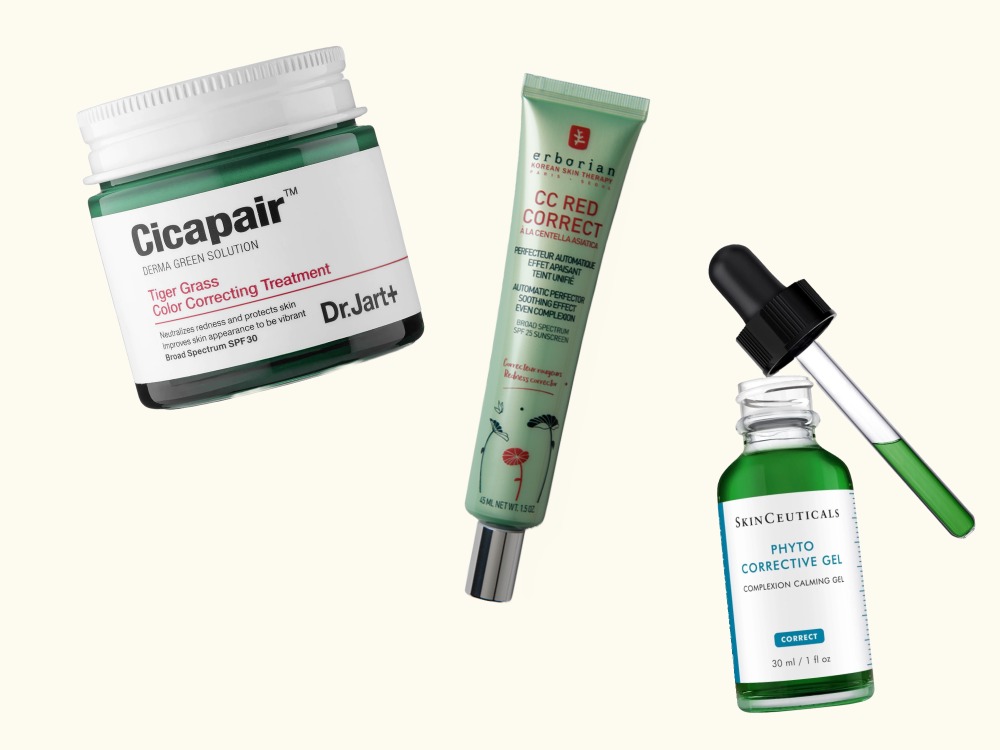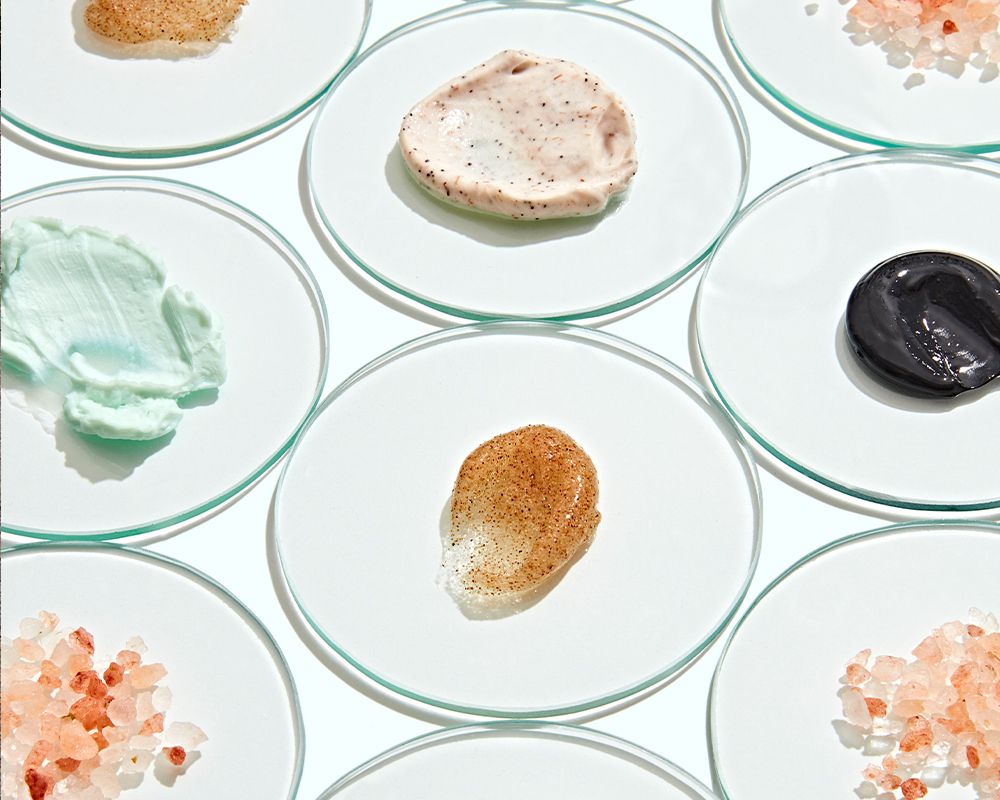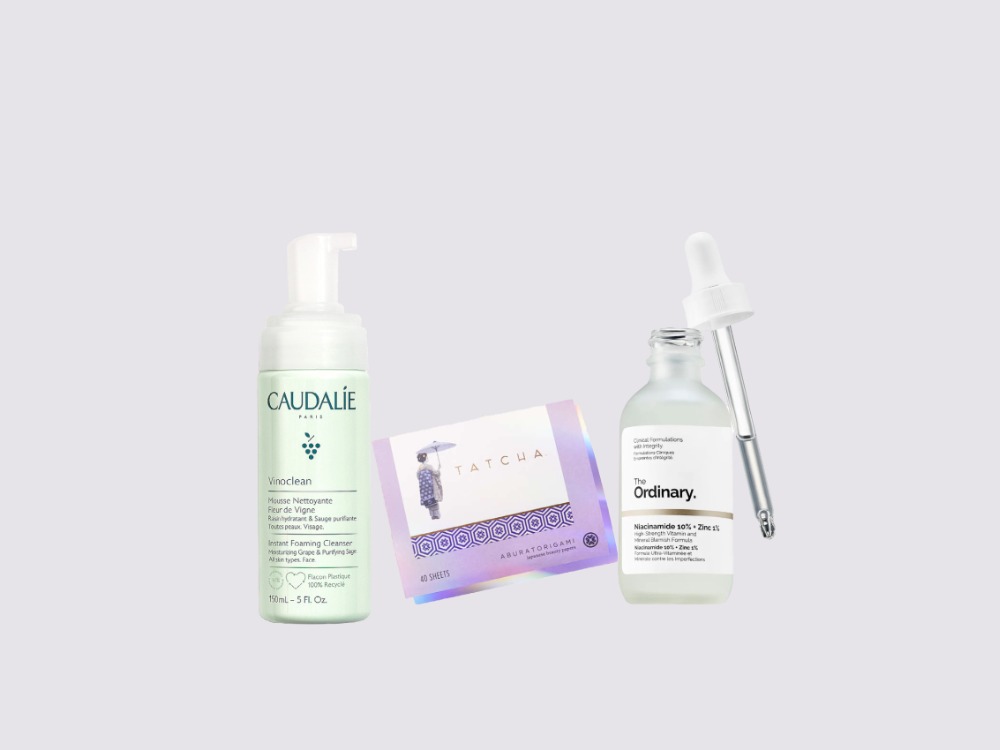Collagen plays an important role in the structure of our skin, but not every way we apply or consume the buzzword ingredient is made equal. We asked the experts to explain what collagen does, how to make more of it, and what uses are worth your time.
What is Collagen?
New York dermatologist Jody A. Levine, MD explains that collagen occurs naturally in our skin. “Collagen is a protein that plays a crucial role in maintaining the structure, elasticity, and strength of the skin,” Dr. Levine explains. “It is responsible for providing support and firmness to the skin, promoting a smooth and youthful appearance.”
One reason our skin stops looking youthful is that our skin stops making as much collagen. About 1% less every year after you turn 20.
According to Omaha, NE dermatologist Joel Schlessinger, MD, explains that as we age, we not only lose collagen, but what we still have, changes in texture. “Over time, our collagen degrades to become less effective, going from long, wavy in appearance to gnarled, knotty-appearing collagen,” Dr. Schlessinger explains. “As this happens, our skin becomes wrinkled due to these texture changes.”
Cosmetic chemist Kelly Dobos explains that in addition to natural collagen-loss, certain habits can make collagen production slow down even faster. “As we age, collagen levels and the ability to replenish collagen decline naturally,” Dobos says. “But factors like UV exposure and smoking can accelerate that process.”
How Do We Make More Collagen?
The good news is, there are ways we can promote collagen production, even as our skin matures.
According to Dobos, how we achieve this comes down to stimulating the right cells. “Fibroblasts are a type of cell that makes the collagen proteins that help maintain the structural framework of our skin,” Dobos explains. “It is thought that if we can selectively stimulate these cells, we can boost collagen production.”
You can achieve this selective stimulation through topical products and noninvasive skin treatments.
“Utilizing topical treatments containing ingredients such as retinoids, vitamin C, peptides, and growth factors can help promote collagen production,” Dr. Levine explains. “Additionally, laser treatments, microneedling therapy and filler can also help.”
According to Dr. Schlessinger, a main way collagen production increases is by signaling the skin to repair itself. “Ingredients like peptides, which are essentially long chains of amino acids that link together to form the building blocks of collagen and other proteins, can be used to instruct your skin to produce more collagen,” Dr. Schlessinger explains. “This means, when you apply a skin care product such as the LovelySkin LUXE HA Peptide Serum, which contains these peptides, your skin will be signaled to repair itself and increase collagen production.”
If you’re not sure what ingredient to start with, Dobos recommends the tried and true: retinol and retinoids. “Retinol and retinoids are some of the most extensively studied topical ingredients with respect to collagen synthesis,” Dobos says. “Studies have shown retinol stimulates fibroblasts and can also increase the numbers of fibroblast. They’re still the gold standard because their benefits have been really hard to beat.”
There’s also one of skin care’s favorite vitamins.
“Vitamin C is another ingredient that helps promote healthy collagen production when applied topically, as our levels of naturally produced collagen decrease with a lack of vitamin C,” Dr. Schlessinger explains. “In fact, the body uses vitamin C during nearly every step of its natural collagen-building process.”
Dobos adds that vitamin C and SPF can also help combat long term damage to the skin. “Protecting the skin from excessive UV exposure and other environmental stressors by wearing sunscreen and using topical products with antioxidants like vitamin C to mitigate damage are important too,” Dobos explains.
What About Topical Collagen?
You’ve likely seen skin-care products with ingredients that promise to build collagen as well as creams that contain collagen. In the latter case, we’re usually talking about collagen extracted from the skin of mammals or fish. So, not exactly cruelty-free.
As far as effectiveness goes, there is some nuance. Older formulations with larger molecules don’t provide much in the way of anti-aging. “Topically applied collagen may provide some moisturizing benefit, but due to the size molecules, they can’t penetrate deeply into the skin,” Dobos explains.
But newer peptide-based formulas are having more success. “With the proper formulation, peptides and hydrolyzed collagen can be applied topically and absorbed into the skin or signal for cellular production of collagen,” Dr. Schlessinger says. “Once absorbed, they’re able to benefit the skin topically by stimulating healthy collagen production.”
According to Dr. Levine, how much benefit you get out of a topical collagen product is down to how well the product is formulated. “Certain smaller peptides and well-formulated products have the potential to penetrate the skin and stimulate collagen production to some extent. It is essential to consider the specific formulation and delivery system of the product.”
What About Collagen Supplements?
It’s no secret that maintaining a healthy diet can be a key component to good skin, but collagen supplements aren’t necessarily a part of that prescription.
“While scientific evidence supporting the direct impact of dietary collagen on skin health is limited, some studies suggest that collagen supplementation may improve certain skin characteristics,” Dr. Levine says.
But that lack of direct evidence makes Dobos skeptical.
“Collagen supplements are going to get broken down in the highly acidic environment of the stomach into amino acids, and it’s not clear those amino acids get to the skin,” Dobos explains. “Some studies have shown a directional increase in skin hydration and elasticity, but I’m still not convinced collagen supplements are worth the money.”
Ultimately, Dr. Schlessinger recommends taking supplement claims with a grain of salt. “The idea of a healthy diet is clearly important, but the concept that eating a certain food will go to that area of the body and improve it is something I don’t believe is realistic,” Dr. Schlessinger says. “There are too many companies that produce vitamins and herbs that promise quick-fixes that either do nothing or cause great harm.”
